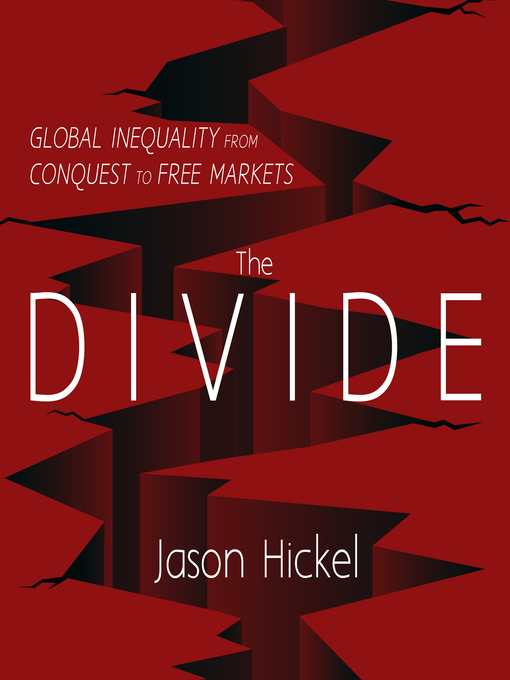- Featured Magazines
- Let's Get Cooking!
- News, Politics, and Business
- Lifestyle Magazines
- Popular Magazines
- All Magazines
- See all magazines collections
The Divide
Global Inequality from Conquest to Free Markets
-
Creators
-
Publisher
-
Release date
February 13, 2018 -
Formats
-
OverDrive Listen audiobook
- ISBN: 9781684410293
- File size: 310259 KB
- Duration: 10:46:22
-
-
Languages
- English
-
Reviews
-
Publisher's Weekly
October 30, 2017
According to this blistering diatribe from Hickel (Democracy As Death), an anthropology professor at the London School of Economics, there is little distinction between the old colonialism and the global aid offered by established economies to the developing world today. He aggressively questions the conventional wisdom that, by offering global aid, developed countries serve as benefactors to developing ones. Rather, argues Hickel, accepting World Bank and the International Monetary Fund loans reduces debtor nations to an indentured servitude comparable to the imperial yoke of old. Hostage to servicing the debt from such loans, nascent economies are hindered from the kinds of domestic investment that would provide a route out of poverty. Hickel’s clear-eyed debunking of the platitudes of international aid is refreshing and revolutionary. Americans and Western Europeans, he charges, have long ignored their countries’ complicity in assassinations of and coups against the leaders of developing nations who suggest defaulting on sovereign debt or nationalizing industry. Hickel also notes that, with the onset of global warming, developed economies are rapidly transforming the Earth into a death trap for rich and poor countries alike. His writing penetratingly explores those forces that perpetuate global inequality and shreds the notion that the fissure between rich and poor is anything other than intentional.
-
Loading
Why is availability limited?
×Availability can change throughout the month based on the library's budget. You can still place a hold on the title, and your hold will be automatically filled as soon as the title is available again.
The Kindle Book format for this title is not supported on:
×Read-along ebook
×The OverDrive Read format of this ebook has professional narration that plays while you read in your browser. Learn more here.

